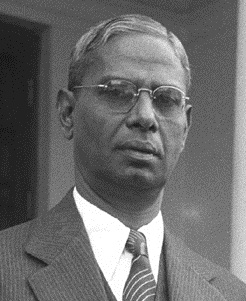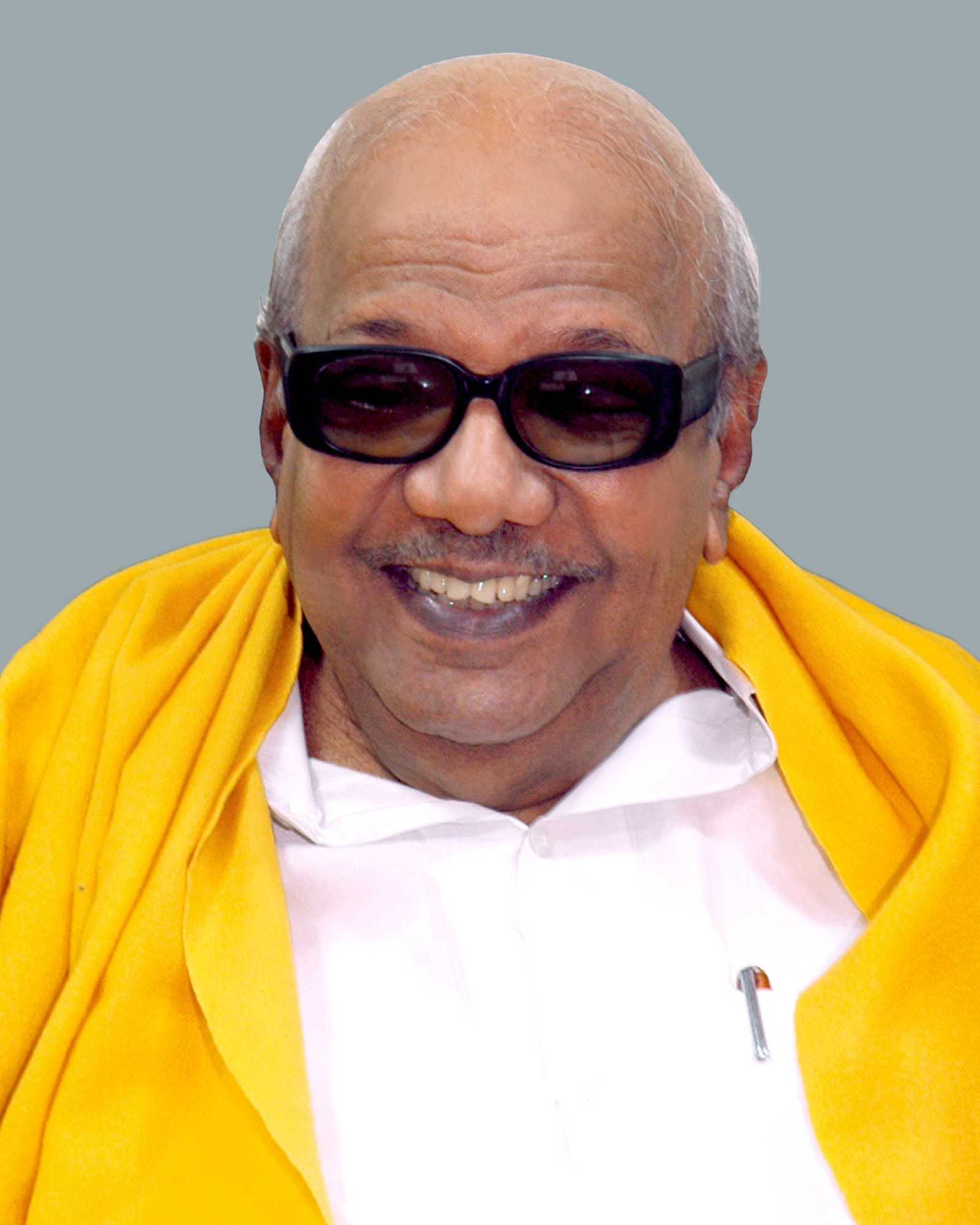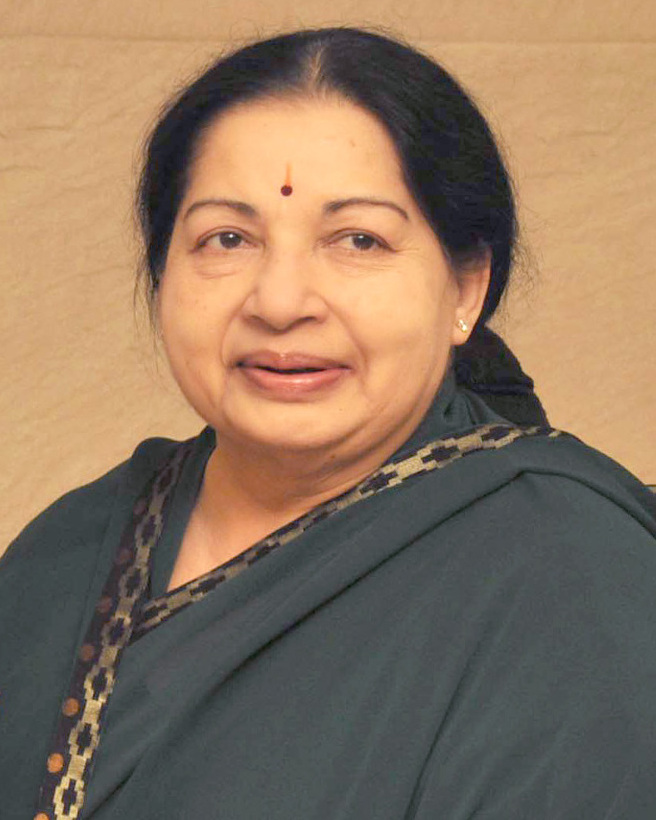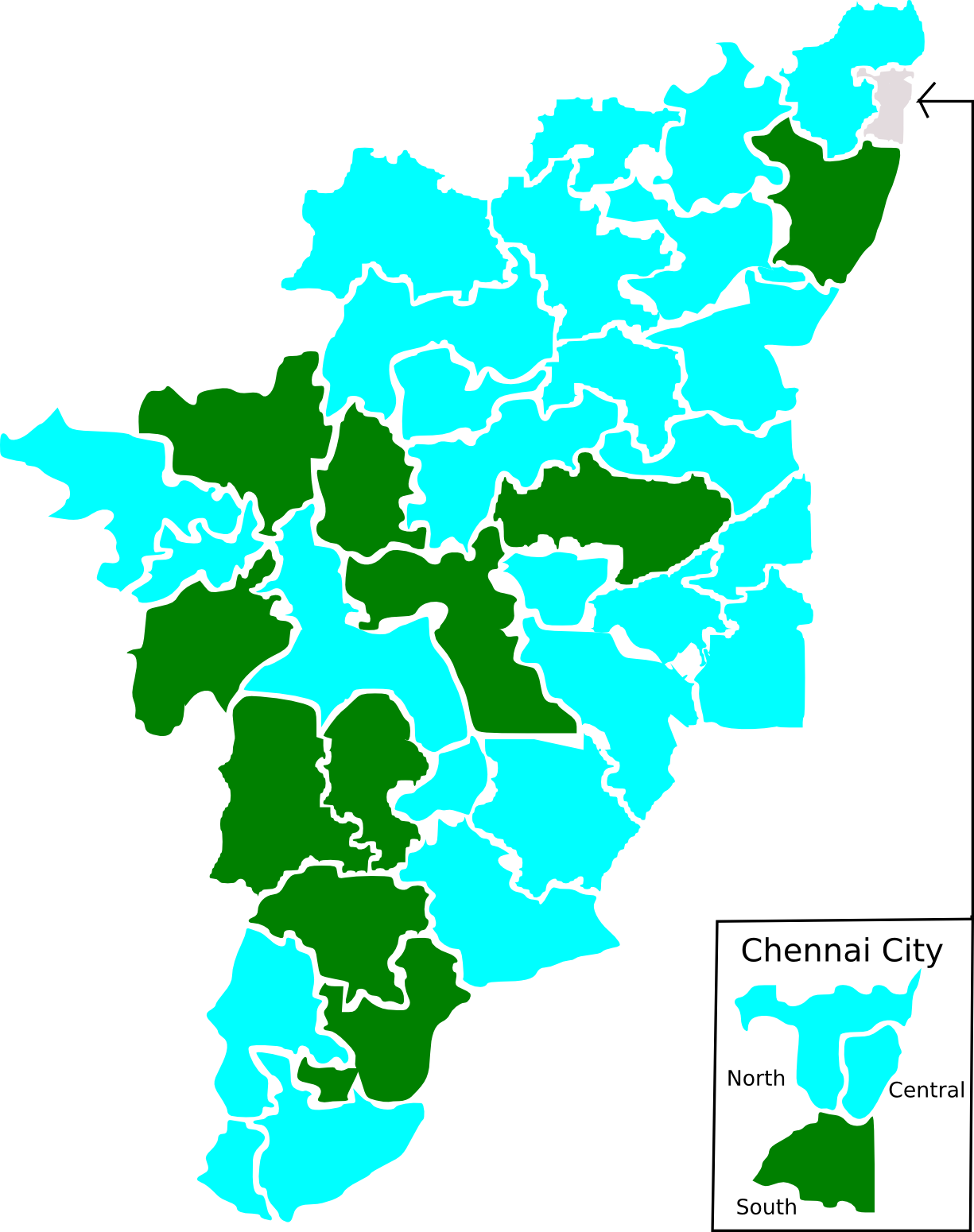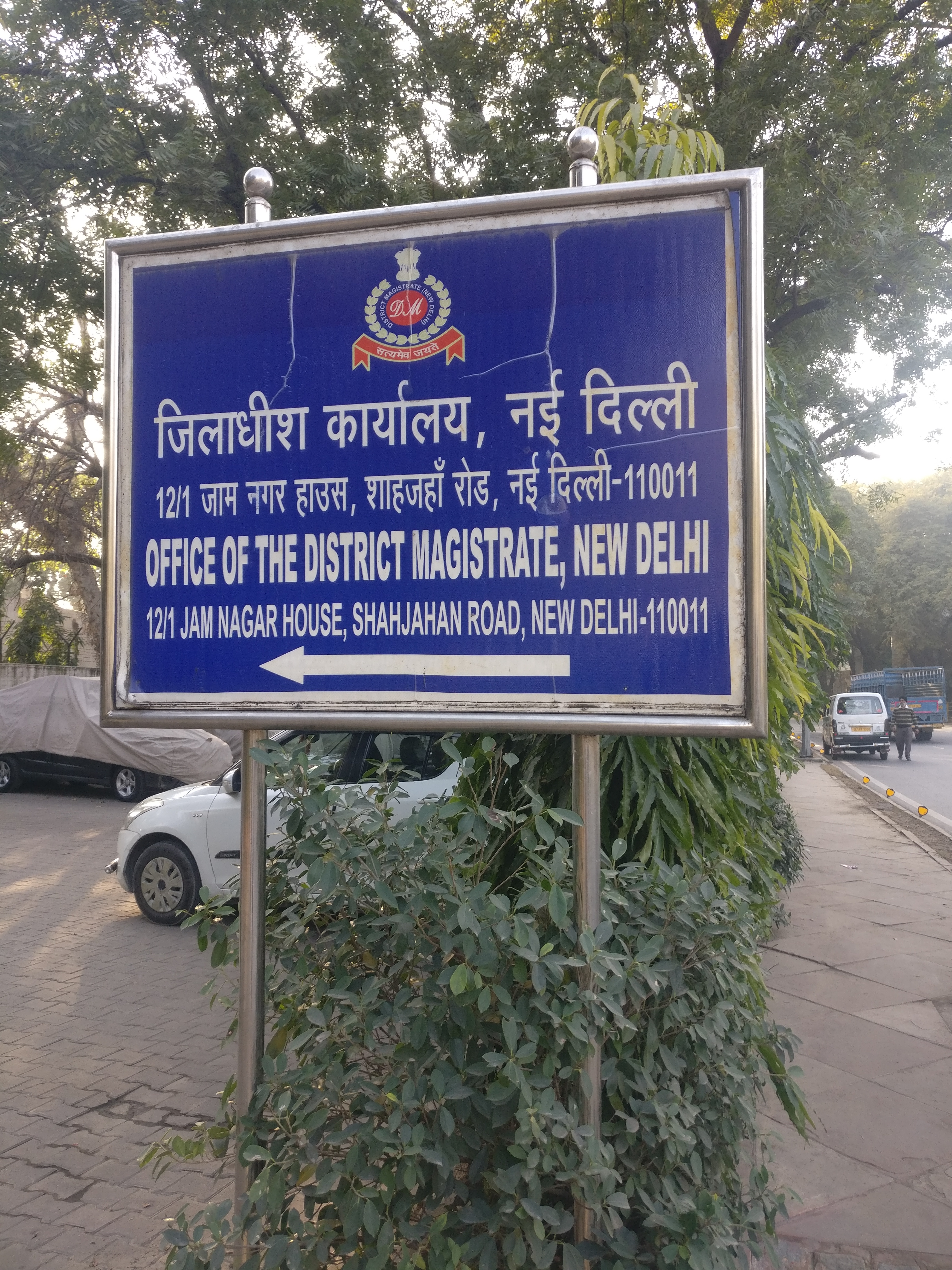|
Sasikala Natarajan
Vivekanandan Krishnaveni Sasikala (born 18 August 1954), also known by her married name Sasikala Natarajan, and often referred to by her initials VKS, is an Indian politician. She was a close associate of J. Jayalalithaa, the late chief minister of Tamil Nadu, who headed the All India Anna Dravida Munnetra Kazhagam (AIADMK) from 1989 until her death in 2016. After Jayalalithaa's death, the party's general council elected her as a temporary secretary general of AIADMK. Before entering the Central Prison in Bangalore, Sasikala appointed Edappadi K. Palaniswami as Chief Minister of Tamil Nadu. Palaniswami and other ministers removed her from the post and expelled her from the party in September 2017. Her dismissal was upheld in April 2022. After her expulsion she went to court over her dismissal as AIADMK general secretary. Her nephew T. T. V. Dhinakaran launched Amma Makkal Munnettra Kazhagam in March 2018, with Sasikala as its general secretary. Dhinakaran replaced her in April ... [...More Info...] [...Related Items...] OR: [Wikipedia] [Google] [Baidu] |
General Secretary
Secretary is a title often used in organizations to indicate a person having a certain amount of authority, power, or importance in the organization. Secretaries announce important events and communicate to the organization. The term is derived from the Latin word , "to distinguish" or "to set apart", the passive participle () meaning "having been set apart", with the eventual connotation of something private or confidential, as with the English word ''secret.'' A was a person, therefore, overseeing business confidentially, usually for a powerful individual (a king, pope, etc.). The official title of the leader of most communist and socialist political parties is the "General Secretary of the Central Committee" or "First Secretary of the Central Committee". When a communist party is in power, the general secretary is usually the country's ''de facto'' leader (though sometimes this leader also holds state-level positions to monopolize power, such as a presidency or premiership ... [...More Info...] [...Related Items...] OR: [Wikipedia] [Google] [Baidu] |
Kallar (caste)
Kallar (or Kallan, formerly spelled as Colleries) is one of the three related castes of South India, southern India which constitute the Mukkulathor confederacy. The Kallar, along with the Maravar and Agamudayar, constitute a united social caste on the basis of parallel professions, though their locations and heritages are wholly separate from one another. Etymology ''Kallar'' is a Tamil word meaning ''thief''. Their history has included periods of banditry. Kallars themselves use titles such as "landlord", Other proposed etymological origins include "black skinned", "hero", and "Palm wine, toddy-tappers". The anthropologist Susan Bayly notes that the name Kallar, as with that of Maravar, was a title bestowed by Tamil Polygar, ''palaiyakkarars'' (warrior-chiefs) on pastoral peasants who acted as their armed retainers. The majority of those poligars, who during the late 17th and 18th centuries controlled much of the Telugu people, Telugu region as well as the Tamil area, had t ... [...More Info...] [...Related Items...] OR: [Wikipedia] [Google] [Baidu] |
Atal Bihari Vajpayee
Atal Bihari Vajpayee (; 25 December 1924 – 16 August 2018) was an Indian politician who served three terms as the 10th prime minister of India, first for a term of 13 days in 1996, then for a period of 13 months from 1998 to 1999, followed by a full term from 1999 to 2004. Vajpayee was one of the co-founders and a senior leader of the Bharatiya Janata Party (BJP). He was a member of the Rashtriya Swayamsevak Sangh, a Hindu nationalist volunteer organisation. He was the first Indian prime minister not of the Indian National Congress to serve a full term in office. He was also a renowned poet and a writer. He was a member of the Indian Parliament for over five decades, having been elected ten times to the Lok Sabha, the lower house, and twice to the Rajya Sabha, the upper house. He served as the Member of Parliament for Lucknow, retiring from active politics in 2009 due to health concerns. He was among the founding members of the Bharatiya Jana Sang ... [...More Info...] [...Related Items...] OR: [Wikipedia] [Google] [Baidu] |
Foreign Exchange Regulation Act
The Foreign Exchange Management Act, 1999 (FEMA), is an Act of the Parliament of India "to consolidate and amend the law relating to foreign exchange with the objective of facilitating external trade and payments and for promoting the orderly development and maintenance of foreign exchange market in India". It was passed on 29 December 1999 in parliament, replacing the Foreign Exchange Regulation Act (FERA). This act makes offences related to foreign exchange civil offenses. It extends to the whole of India, replacing FERA, which had become incompatible with the pro-liberalization policies of the Government of India. It enabled a new foreign exchange management regime consistent with the emerging framework of the World Trade Organization (WTO). It also paved the way for the introduction of the Prevention of Money Laundering Act, 2002, which came into effect from 1 July 2005. Description Unlike other laws where ''everything is permitted unless specifically prohibited'', under ... [...More Info...] [...Related Items...] OR: [Wikipedia] [Google] [Baidu] |
Minister Of Finance (India)
The Minister of Finance (Vitta Mantrī ) (or simply, the Finance Minister, short form FM) is the head of the Ministry of Finance of the Government of India. One of the senior offices of the Union Cabinet, the finance minister is responsible for the fiscal policy of the government. A key duty of the Finance Minister is to present the annual Union Budget in Parliament, detailing the government's plan for taxation and spending in the coming financial year. Through the Budget, the finance minister also outlines allocations to all the ministries and departments. The Minister is assisted by the Minister of State for Finance and the junior Deputy Minister of Finance. There have been a number of Ministers of Finance that went on to become the Prime Minister; Morarji Desai, Charan Singh, Vishwanath Pratap Singh and Manmohan Singh and also to serve as the President; R.Venkataraman and Pranab Mukherjee. Several Prime Ministers have also gone on to hold the position of Minister of Finance. ... [...More Info...] [...Related Items...] OR: [Wikipedia] [Google] [Baidu] |
1996 Indian General Election In Tamil Nadu
The 1996 Indian general election polls in Tamil Nadu were held for 39 seats in the state. The result was a landslide for the newly formed alliance between Dravida Munnetra Kazhagam (DMK), Tamil Maanila Congress (TMC) and its leader G. K. Moopanar, and the left parties who ended up getting all 39 seats. Post election, the newly formed United Front, ended up getting all the seats from Tamil Nadu, since DMK and TMC joined it, with outside support from Indian National Congress (INC). The results in Tamil Nadu is a reflection of the results nationally, where INC, ended up losing the most seats. This election was seen as redemption for Moopanar and TMC, since they left Congress, on grounds that they formed an alliance with AIADMK, even though J. Jayalalithaa, general secretary of AIADMK, was accused of many corruption charges. This led to a disastrous showing, for AIADMK and Congress in Tamil Nadu, since they lost all 39 seats from the last election, and TMC reaping the benefits by ge ... [...More Info...] [...Related Items...] OR: [Wikipedia] [Google] [Baidu] |
1996 Tamil Nadu Legislative Assembly Election
The eleventh legislative assembly election of Tamil Nadu was held on 2 May 1996. The Dravida Munnetra Kazhagam (DMK) led front won the election and its leader M. Karunanidhi, became the chief minister. This was his fourth term in office. S. Balakrishnan, also known as So. Balakrishnan, of Tamil Maanila Congress ( TMC ), became the Leader of the Opposition. The incumbent All India Anna Dravida Munnetra Kazhagam (AIADMK) government was defeated in a landslide with its general secretary and outgoing chief minister J. Jayalalithaa losing the election from the Bargur constituency. She became the first Incumbent Chief Minister since M. Bakthavatsalam in 1967 to lose her own constituency. Background Anti-Jayalalithaa The J. Jayalalithaa led All India Anna Dravida Munnetra Kazhagam (AIADMK) government, which had been in power since 1991 was beset with corruption scandals and public discontent. A series of corruption scandals, a growing reputation for high handedness and an extravaga ... [...More Info...] [...Related Items...] OR: [Wikipedia] [Google] [Baidu] |
Subramanian Swamy
Subramanian Swamy (born 15 September 1939) is an Indian politician, economist and statistician. Before joining politics, he was a professor of Mathematical Economics at the Indian Institute of Technology, Delhi. He is known for his Hindu nationalist views. Swamy was a member of the Planning Commission of India and was a Cabinet Minister in the Chandra Shekhar government. Between 1994 and 1996, Swamy was Chairman of the Commission on Labour Standards and International Trade under former Prime Minister P. V. Narasimha Rao. Swamy was a long-time member of the Janata Party, serving as its president until 2013 when he joined the Bharatiya Janata Party (BJP). He has written on foreign affairs of India dealing largely with China, Pakistan and Israel. He was nominated to Rajya Sabha on 26 April 2016. Family and education Subramanian Swamy was born on 15 September 1939, in Mylapore, Chennai, Tamil Nadu, India, to a family which hailed originally from Madurai in Tamil Nadu. He iden ... [...More Info...] [...Related Items...] OR: [Wikipedia] [Google] [Baidu] |
1991 Indian General Election In Tamil Nadu
The 1991 Indian general election polls in Tamil Nadu were held for 39 seats in the state. The result was a repeat landslide victory for Indian National Congress, and its ally All India Anna Dravida Munnetra Kazhagam, winning all 39 seats. The opposition party Dravida Munnetra Kazhagam, which was part of the National Front, lost heavily, not winning a single seat. During this election, Rajiv Gandhi was assassinated, when campaigning for Margatham Chandrasekar for the Indian National Congress, in the Sriperumbudur constituency. Voting and results Results by Alliance List of Elected MPs c-indicates sitting/incumbent M.P. from previous Lok Sabha (1989–1991) Post-election Union Council of Ministers from Tamil Nadu Source: Even though Congress and AIADMK swept Tamil Nadu, which proved to be an important state for Narasimha Rao and Congress to have a minority government at the national level, no cabinet berths were given to members from Tamil Nadu. Also all 4 council of min ... [...More Info...] [...Related Items...] OR: [Wikipedia] [Google] [Baidu] |
1991 Tamil Nadu Legislative Assembly Election
The tenth legislative assembly election of Tamil Nadu was held on 24 June 1991. The All India Anna Dravida Munnetra Kazhagam (AIADMK) – Indian National Congress (INC) alliance won the elections in a landslide and AIADMK general secretary J. Jayalalithaa became the chief minister. This was her first term in office. The united strength of AIADMK (after the merger of Jayalalithaa and Janaki Ramachandran and R M Veerappan faction, who was made Joint General Secretary of AIADMK]), the alliance with the Congress, and the wave of public sympathy in the wake of Rajiv Gandhi assassination combined to produce a massive victory for the AIADMK. The DMK could only win 2 seats. This was the worst performance of the DMK since it entered electoral politics in the 1957. Background President's rule On 30 January 1991, the DMK government which had come to power after winning the 1989 assembly election, was dismissed by the Indian Prime minister Chandra Shekhar using Article 356 of the Indian ... [...More Info...] [...Related Items...] OR: [Wikipedia] [Google] [Baidu] |
South Arcot
South Arcot District was a district in the Madras Presidency of British India. It covered the area of the present-day districts of Cuddalore, Kallakurichi and Viluppuram in the Indian state of Tamil Nadu. The district was divided into eight taluks and covered a total area of . The administrative headquarters was the town of Cuddalore. In ancient times, South Arcot was a part of the Chola and the Pallava kingdoms. British presence in the district dates to 1690 when the British East India Company set up a factory at Fort St David near Cuddalore. South Arcot was the scene of confrontation between the British and the French and the British and Tipu Sultan. The British took over the administration in 1781 and established full sovereignty in 1801. The economy is largely agricultural. South Arcot is noteworthy for lignite mines in Neyveli. History South Arcot was the southern portion of the Mughal province (''subah'') of Arcot. In ancient times, the northern part of South Arcot ... [...More Info...] [...Related Items...] OR: [Wikipedia] [Google] [Baidu] |
District Collector
A District Collector-cum-District Magistrate (also known as Deputy Commissioner in some states) is an All India Service officer of the Indian Administrative Service (IAS) cadre who is responsible for ''land revenue collection'', ''canal revenue collection'' and ''law & order maintenance'' of a ''District''. ''District Collector (DC) cum District Magistrate (DM)'' come under the general supervision of divisional commissioners wherever the latter post exists. India has 748 districts as of 2021. History The current district administration in India is a legacy of the British Raj, with the ''Collector cum District Magistrate'' being the chief administrative officer of the District. Warren Hastings introduced the office of the District Collector in the Judicial Plan of 1772. By the Judicial Plan of 1774 the office of the Collector cum District Magistrate was temporarily renamed Diwan. The name, Collector, derived from their being head of the revenue organization (tax collec ... [...More Info...] [...Related Items...] OR: [Wikipedia] [Google] [Baidu] |

